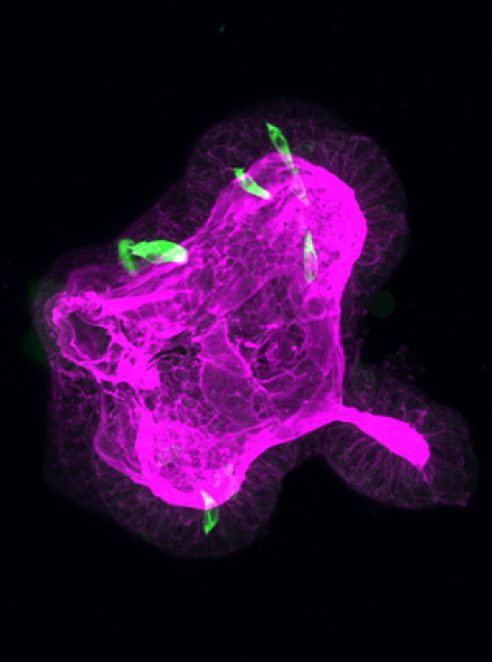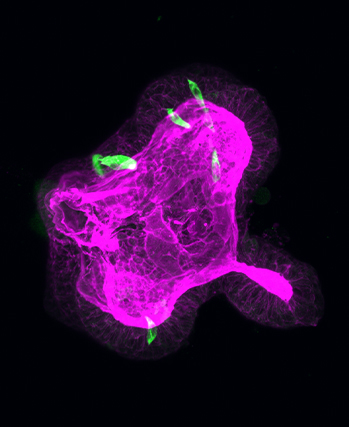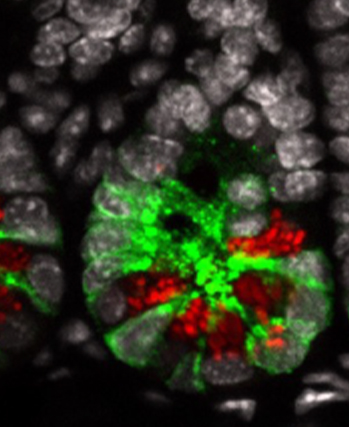Although Helminth infections are prevalent throughout the world, they are particular a health issue in developing countries. We still don’t fully know how immunity to helminth infections are mounted, nor how the strengths of such immune responses are tailored. We here find that specialized epithelial cells called tuft cells, are providing an epithelial-intrinsic feedback mechanism during helminth-induced immune responses. This is important so the body doesn’t ‘overreact’ during an infection, which is often a detrimental feature during infection or inflammation.
BMP signaling in the intestinal epithelium drives a critical feedback loop to restrain IL-13-driven tuft cell hyperplasia
Research Area: Cell Biology, Disease Biology
https://www.science.org/doi/10.1126/sciimmunol.abl6543
Authors: Håvard T. Lindholm, Naveen Parmar, Claire Drurey, Marta Campillo Poveda, Pia M. Vornewald, Jenny Ostrop, Alberto Díez-sanchez, Rick M. Maizelsand, Menno J. Oudhoff

Related Articles

Publication
BMP signaling in the intestinal epithelium drives a critical feedback loop to restrain IL-13-driven tuft cell hyperplasia
Although Helminth infections are prevalent throughout the world, they are particular a health...

Publication
LSD1 represses a neonatal/reparative gene program in adult intestinal epithelium
After birth, the epithelium that lines our gut transitions (or matures) so that it can deal...
Publication
Targeting mRNA binding proteins to respond to stress responses
The paper establishes the phosphorylation of heterogeneous nuclear ribonucleoprotein A1...